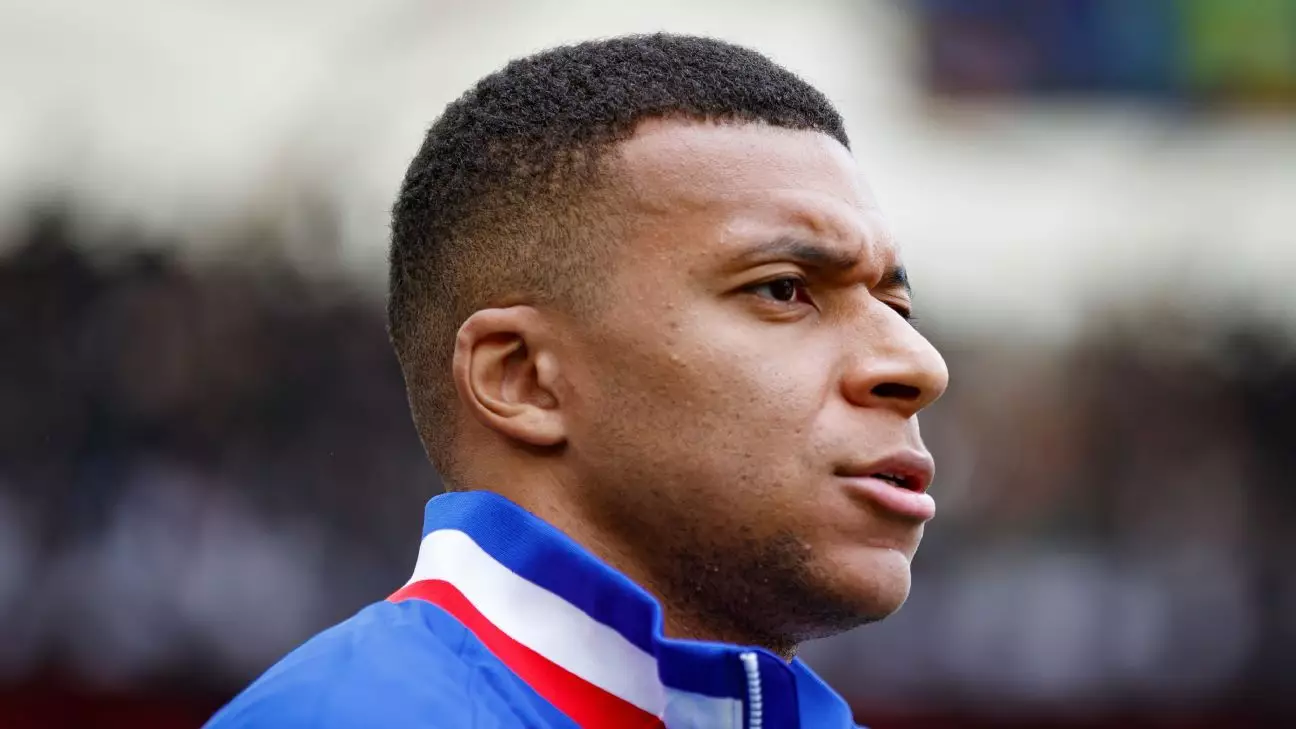In the world of football, the drama on the field often pales in comparison to the controversies that unfold off it. Kylian Mbappé’s recent legal actions against Paris Saint-Germain (PSG) exemplify a growing dissatisfaction that goes beyond contractual disputes and touches the very essence of an athlete’s worth. As he has accused PSG of moral harassment, the implications of this case could shake the foundations of how clubs treat their star players.
Mbappé, a prodigious talent who has become a household name, left PSG last summer after an impressive record of 256 goals over seven years. His transition to Real Madrid raised eyebrows, but what lies beneath this move is a tale of unmet expectations and professional disappointment. The accusation of moral harassment not only signals personal grievances; it questions the ethics of player management in elite football.
Moral Harassment: A Serious Allegation
The term “lofting,” as referenced in the Paris prosecutor’s filing, encapsulates a troubling practice in football. It describes the isolation of players due to administrative or disciplinary decisions, effectively sidelining them from the main team. This was Mbappé’s experience when he chose not to extend his contract. Upon making his intentions clear, he found himself training away from the first team, clearly indicating a breakdown of relations between him and the club management.
Such a drastic measure raises fundamental questions about how a club should manage relationships with its players, especially when those players are as pivotal as Mbappé. The practice of lofting exposes a dark side of professional sports, where emotional and mental well-being can be compromised in favor of business decisions. Clubs like PSG, who have built their reputation on the back of incredible talents, must tread carefully in maintaining healthy dynamics with their players to avoid breeding resentment.
The Broken Promises and Disillusionment
Mbappé’s grievances do not end with lofting. His sense of betrayal is magnified by the broken promises regarding PSG’s recruitment strategies. When he signed a lucrative contract that made him one of the highest-paid players in football history in 2022, it came with the expectation of PSG bolstering their squad with world-class talent. Instead, what ensued was a palpable sense of stagnation. While Mbappé was heralded as the face of the club, he soon realized that the club’s ambitions didn’t align with his expectations.
This misalignment became even more evident when he shocked PSG by opting out of an additional year in his contract. A player of his caliber should not be left feeling he must make such a dramatic decision amidst a lukewarm transfer market. The lack of foresight from PSG led them to a precarious situation, where they faced losing their prized asset for nothing. This is a situation that clubs must learn from: stellar players are not mere commodities; their aspirations must be taken into account.
A Shifting Landscape in Player Management
The incident with Mbappé shines a spotlight on a larger paradigm shift within football. As players become more aware of their value and rights, the traditional models of player management are being reevaluated. Mbappé’s accusations signify not just personal strife, but a generational shift in the way players perceive their roles and rights within clubs.
Clubs are now facing the dual challenge of achieving sporting success while honoring the emotional landscapes of their players. This delicate balance is crucial, as alienating key figures like Mbappé can have far-reaching consequences—not just for team morale, but also for brand reputation and fan relationships.
The Future of Relations Between Players and Clubs
As the tension between Mbappé and PSG continues to unravel in the courts of both public opinion and legal scrutiny, there are lessons to be drawn for the football industry at large. The ongoing saga raises critical questions about the responsibilities of clubs to provide not only resources but also a supportive environment for their players. The stakes are high; this case could serve as a landmark moment in defining player rights and club accountability in the ever-evolving landscape of professional sports.
In tuning into the evolving dynamics of player-club relationships, it becomes clear that the future of football hinges less on sheer talent and more on mutual respect. Kylian Mbappé’s brave confrontation with PSG isn’t merely about unpaid wages or grievances over treatment—it’s a clarion call for change, advocating for a culture where players are seen as partners and not just assets.

